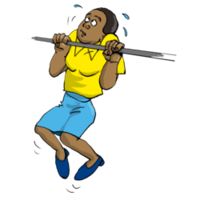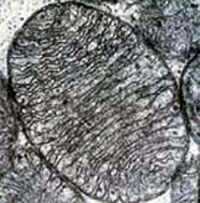Aging and Exercise

It is a common observation that it becomes more difficult to do a lot of exercise as we get older, and the biceps no longer bulge quite as much after an hour in the gym. We have to exercise harder to get the same results.
Metabolism slows down as well, and for years it has been assumed that those events are linked: we slow our metabolism and find exercise harder because we gradually lose muscle mass.
But new research shows that it isn’t quite so simple, and the results should encourage any of us over forty to stay in the gym.
A new study published in the journal Cell Metabolism will likely help our understanding of that difficulty, as well as unlocking another of the secrets of type 2 diabetes.
As we become older, we hide more fat in our muscles and livers, and this fat has been linked to the age-related rise in insulin resistance that may go on to cause type 2 diabetes and hypertension.
A research team from the Howard Hughes Medical Institute based at Yale University School of Medicine compared the skeletal muscle of rats aged three-month-old and two-year-olds.
They found that an enzyme called AMP-activated protein kinase (AMPK) slowed down its activity in the older animals. AMPK’s role in skeletal muscle is to stimulate the body to burn off fat and to provide fuel for the cells. It does this by producing mitochondria – the power packs of the cell. So AMPK activity in our skeletal muscle does at least three things: it stimulates glucose uptake, increases fat oxidation and promotes the production of new mitochondria.

It has been known for some time that the skeletal muscles of marathon runners have a much greater mitochondrial content and a greater capacity to burn fat. This is probably linked to high levels of AMPK activity.
The animals were exposed to a chemicals that produce that produce acute or chronic stimulation of AMPK. They were also exercised and some were fed more food, each of which should stimulate the production of new mitochondria.
The researchers found that the older rats had lower AMPK activity than the younger animals. In addition, the muscle of young rats who did more exercise had double the normal AMPK activity while in older rats this effect was severely blunted.
The message is this: as we age it is not muscle mass but enzyme activity that falls first. We have to work harder when trying to maintain the same benefits from exercise as we did when we were young.
We know that loss of skeletal muscle mass and function as we age is a major problem that has a significant effect on quality of life of older people. If this study is confirmed in humans it would have enormous implications. In the older rats, the AMPK activity was almost gone, implying that no amount of exercise would bring those muscles back. But it would be good to know if we can work out some other methods for bringing those enzymes back to life.
Although the paper doesn’t mention it, there is also some evidence that AMPK activity may be important in controlling feeding behavior in the hypothalamus at the base of the brain and the “stress hormone” norepinephrine plays a critical role in the way in which exercise stimulates AMPK. As we get older we usually find that our tempers are less fiery and part of the reason for that is that we produce less norepinephrine.
Start exercising early in life, and never get out of the habit. For if you do, you might lose that AMPK activity forever.
“Wholesome physical exercise reconstitutes energy, stemming the aging process, making the body light and firm, while safeguarding against fatigue and inducing cheerfulness.”
–Sushruta Samhita (Indian Surgeon who wrote the book the Sushruta Samhita, c. 6th Century B.C.E.)
“Exercise is the chief source of improvement in our faculties.”
–Hugh Blair (Scottish Presbyterian Minister and Writer, 1718-1800)
“It is exercise alone that supports the spirits, and keeps the mind in vigor.”
Marcus Tullius Cicero (Roman Political Figure and Orator, c.106-43 B.C.E.)






